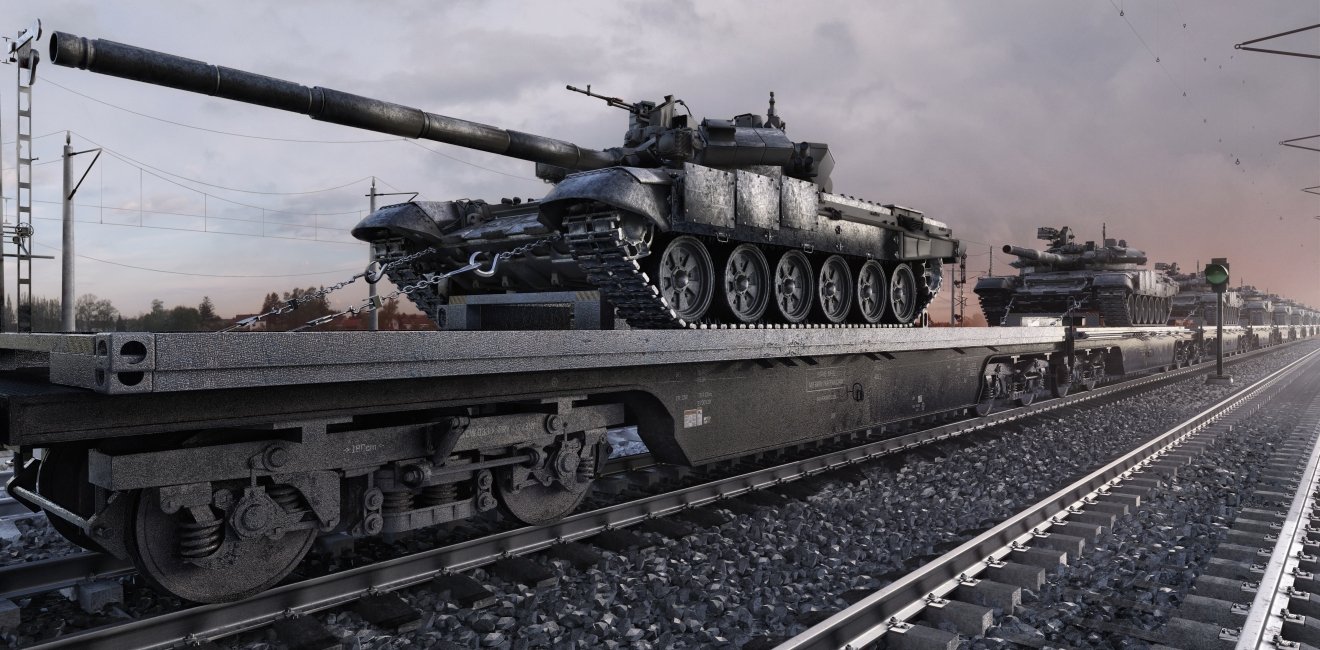
A blog of the Kennan Institute
BY ILIYA KUSA
The narrow lens through which news analysts have responded to events on the Ukraine-Russia border, parsing them as a regionally limited effort by Russia to seize at least influence if not territory, has obscured the true magnitude of the current political situation. What began in late November 2021 as an apparent attempt by Russia to squeeze concessions from the West on the Ukrainian issue has turned out to be a far more complicated process with global ramifications. In play is nothing less than the post–World War II international order and its successor, a primarily Western-led liberal world order.
The latest military and political escalation by Russia near Ukraine’s borders is not solely about Ukraine. Russian ruling political groups view the current situation as offering a unique chance to achieve closure on issues they haven’t been able to resolve for the last twenty years, in particular NATO’s dominance of Europe since 1991. For the Kremlin, the escalation is about carving out a new geostrategic role for Russia in a revised world order. Ukraine under this scenario is a playground where Russia is able to project power, to demonstrate its ability and willingness to use force, without risking a full-blown military confrontation with the West. Attacking Ukraine is a solid way for Russia to draw its “red lines” and show its readiness to back up words with actions.
From Russia’s point of view, a multipolar world order with the return of great power competition for political reach has already become a reality—indeed, the parity among great powers enshrined in the composition of the UN Security Council is something Moscow has always insisted on. Since the mid-2000s, in an apparent protest against the American-led post–Cold War liberal system, the Russian ruling elites, headed by President Vladimir Putin, have been publicly denouncing what they see as an imbalanced and uneven order in which Russia has not been able to find for itself a decent role in close cooperation with the West. Unable to strike a deal with Western powers, Russia has opted for a more aggressive, opportunistic course, nurturing historical and cultural resentment and revanchist ideas in that post-Soviet country as its main ideological fuel.
A gradual weakening of global institutions, the rise of nationalist fervor and a populist tide in Europe, the post-Arab Spring chaos, the deepening of cultural and ideological differences inside the EU, the United States’ abandonment of its role as “world sheriff,” the swift regionalization of international relations, and other processes led Russian elites to believe that the liberal system built by Western powers to serve their interests is no longer functional and needs to be changed. First in Georgia in 2008, then in Syria and Libya in 2011, in Ukraine in 2014, in the Southern Caucasus in 2020, and ultimately in Kazakhstan in 2021, Russia has repeatedly demonstrated that it has the ability, the will, and the resources needed to create “realities on the ground,” no matter what the West thinks.
The 2021 April and November military maneuvers near Ukraine’s borders were yet another attempt to draw the attention of the United States, a country Russia deems to be the sole and only “real master” of the situation and the only one worth speaking to. As Putin’s December press conference showed, he doesn’t talk to Ukraine or Zelensky and he doesn’t care to. His only audience is the American elites and President Joe Biden. The Ukrainian government likely ceased to be interesting for Russians in 2020, when Moscow’s push for direct talks between Kyiv and the pro-Russian separatists in the Donbas utterly failed. For the Kremlin, the breakdown in the talks proved that Zelensky’s new team in Kyiv was as reluctant to follow Moscow’s demands as was his predecessor’s government in 2015–2019.
The January 21 Geneva meetings between top U.S. and Russian diplomats and the January 10 talks on security unscored the gulf between Russian and American approaches to current events and the purposes of the talks. Russian officials are deliberately trying to portray these negotiations as global and fundamental in nature, similar to the post-Cuban crisis talks in the 1960s. That’s why Moscow is constantly injecting into these consultations systemic political topics, not necessarily related to the situation on Ukraine’s border. Probably for the first time in many years, Putin wants to talk frankly and openly about issues he hasn’t been able to force the West to address for the last twenty years, namely, reevaluating the Western-dominated power arrangements that emerged after the Cold War and amending the European security architecture, in which NATO is seen as a major tool of American influence and military presence.
This is why Russian diplomats participating in the talks are annoyed by what they consider to be American efforts to limit the discussions to two or three smaller and insignificant topics, such as the implementation of the Minsk agreements, curtailing the number of military drills, and the nondeployment of medium-range missiles.
Another reason why U.S.-Russian negotiations in Geneva are deliberately, on Russia’s part, not Ukraine-centered is the attention they are attracting in other capitals, and not only in Europe. At least a dozen other countries, including Turkey, Iran, China, Saudi Arabia, the UAE, Japan, and Poland, are likely to some extent to share Russia’s views on the necessity of recrafting the world order. They see themselves as ascending regional powers and are willing to play a more active and consequential role in a new multipolar world order. As a result, what happens in Geneva is expected to have a profound effect on the foreign policy of many countries.
Ukraine’s position in these global developments is both tragic and hopeful. The tragedy is that recent events have vitiated Ukraine’s post-2014 foreign policy, which was mostly based on the belief in a Western front united against Russia, the efficacy of sanctions as a means of neutralizing Moscow, and a swift NATO membership for Ukraine as the main security guarantee. Obviously, these expectations have failed to prove up.
However, the situation does provide Kyiv the opportunity to fundamentally reassess its foreign policy, rethink the core principles by which the state has functioned for the last thirty years, come up with a brand-new foreign policy, and probably get closer to answering the question of Ukraine’s role in a future world order. This reassessment, while difficult, should offer clarity and hope to Ukraine.
The opinions expressed in this article are those solely of the authors and do not reflect the views of the Kennan Institute.
Author


Kennan Institute
After more than 50 years as a vital part of the Wilson Center legacy, the Kennan Institute has become an independent think tank. You can find the current website for the Kennan Institute at kennaninstitute.org. Please look for future announcements about partnership activities between the Wilson Center and the Kennan Institute at Wilson Center Press Room. The Kennan Institute is the premier US center for advanced research on Eurasia and the oldest and largest regional program at the Woodrow Wilson International Center for Scholars. The Kennan Institute is committed to improving American understanding of Russia, Ukraine, Central Asia, the South Caucasus, and the surrounding region through research and exchange. Read more

Explore More in Focus Ukraine
Browse Focus Ukraine
Talking to the Dead to Heal the Living

Ukrainian Issue in Polish Elections


